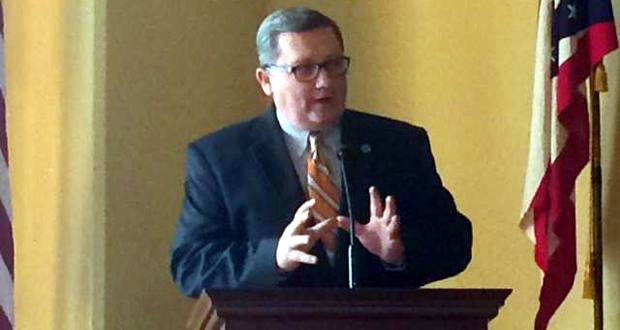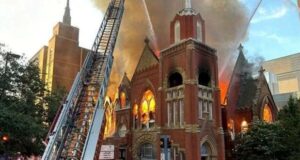Pastors are pressured from all sides to speak out on hot button issues, but struggle with just how to address those topics, such as LGBT issues and same-sex marriage.
In a new report from the Barna Group, Faith Leadership in a Divided Culture, nine out of 10 Christian pastors said they feel that helping Christians form biblical beliefs about specific issues plays a major role in their job.
A divided and contested American culture raises the stakes for faith leaders as they address many of the controversial issues of the day.
“The stakes are high in the public square,” the researchers wrote. “The issues pastors feel most pressured to speak out on are the same ones they feel limited to speak on.”
According to the study, half of Christian pastors occasionally or frequently feel limited in their ability to speak out about controversial issues out of concern they will offend people. When asked to identify the source of the concerns, pastors are much more likely to say that they feel limited by those inside the church than those outside.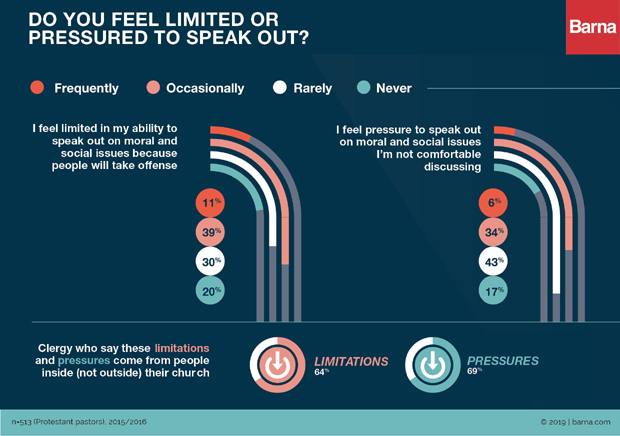
Pastors are not only afraid of offending some in their congregation, but also pressured by others to speak up on those very same topics, including those related to the LGBT community, same-sex marriage rights, abortion, sexual morality and politics.
The Barna report tracked faith leaders’ responses in surveys from 2014 to 2017. Among non-mainline pastors, 46 percent said it has become harder to speak out about biblical beliefs related to social issues than it was five years ago, while 49 percent said it is the same. Only 6 percent said it has become easier.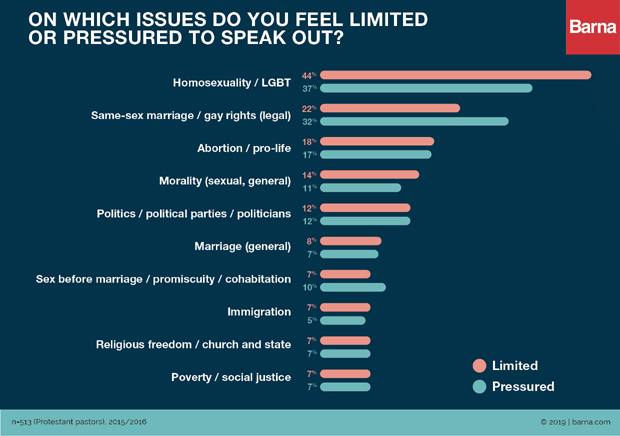
Barna Group president David Kinnaman told CBN News that a large majority of pastors feel constrained in what they can teach. “They actually feel pressured to not preach on certain topics or pressured to speak on topics that they are not ready to talk about,” he said.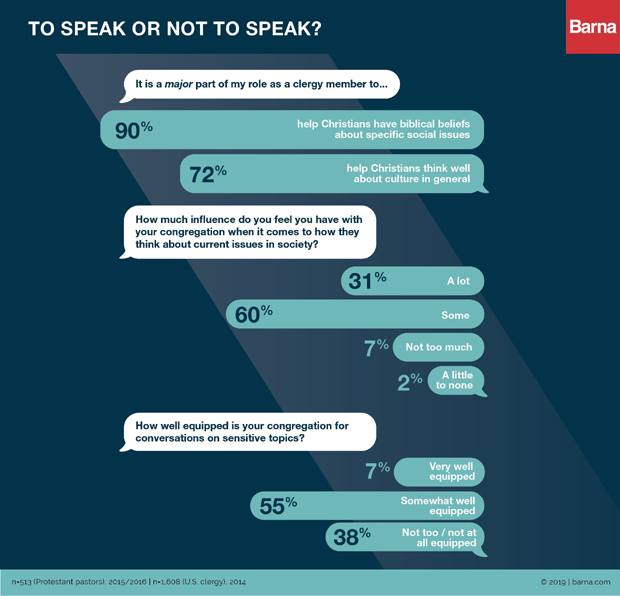
More than nine in 10 Pastors believe they have influence with their congregants when it comes to how they think about current issues in society (31% say “a lot” of influence, 60% “some” influence). Most leaders express optimism that their congregants are well-equipped to have conversations on sensitive topics.
The Role of Clergy in Preserving Religious Freedom
Large majorities of practicing Christians, and especially Millennials and evangelicals, report two confident attitudes: They feel their faith is a force for good (88%) and that it is essential for society (75%).
About three-quarters (76%) of faith leaders feel religious freedom is becoming less valued. Nearly half (44%) think that other freedoms will be at risk in coming years.
While a majority of pastors (65%) say it is a significant part of their role to help their constituents understand the nature of religious freedom in the U.S., far fewer see themselves as responsible for direct political and social engagement.
Just over half say it is part of their role to help Christians understand their responsibility to vote on specific issues (53%), and only one in five (21%) says it is part of their job to help Christians understand why they should vote for or against specific candidates. Less than half of Christian pastors (48%) say defending the rights of other religious groups is a major part of their role.
More than 9 in 10 US clergy state that religious communities must remain free to teach a traditional definition of marriage, and 79 percent of American adults agree, and also feel that religious institutions should not be legally compelled to perform same-sex weddings, according to Barna surveys.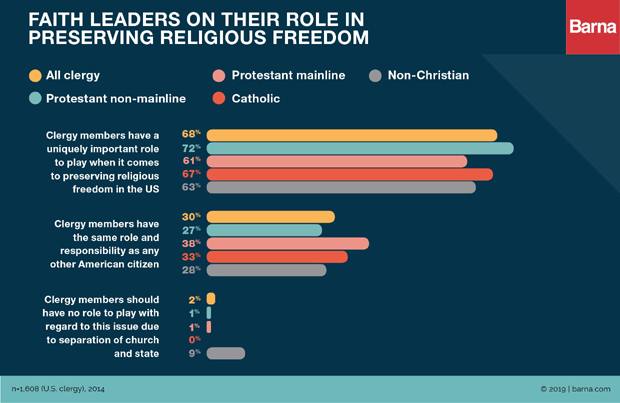
“Much has changed in the political landscape over the last five years,” says Roxanne Stone, Barna’s editor in chief.
“Today’s changing, pluralistic society requires a new kind of thinking and approach for Christians — who no longer hold a default majority worldview. In part, this requires a true reckoning with what laws are ‘those of the land’ and which are specific to our religious context. When spiritual leaders consider which political issues to speak out on, it is important to be certain those issues are a universal good for human flourishing and not a matter of personal discipline, spiritual transformation or church community.”
Stone also addressed the pressure on faith leaders.
“The pressure for leaders and especially faith leaders to satisfy everyone on all sides, and to avoid offense, is very real today, especially in the digital era,” Stone said. “The public nature of social media only increases the stakes.
“As challenging as it may be, faith leaders must work to cultivate humility, discernment and courage in the midst of a divided culture. Pastors must be committed for the long haul, educating and equipping their people to respond with love and conviction, in word and deed. This, after all, is the essence of discipleship.”
–Lee Hartman | Metro Voice News
A study on church leadership: what is “qualified?”
 Metro Voice News Celebrating Faith, Family & Community
Metro Voice News Celebrating Faith, Family & Community

